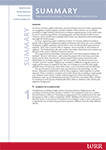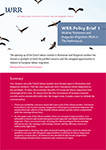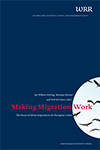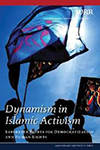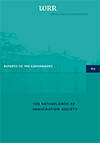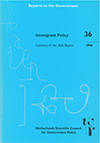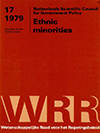Previously published
Migration and Classification: Towards a Multiple Migration Idiom (summary of Investigation no. 34)
In various countries, public authorities, research institutes and civil-society organisations are struggling to classify migrants and their children. When and how can we classify according to origin? Making a distinction according to migrant groups can be useful when it comes to monitoring problems, developing policy and determining its effectiveness. However, such a classification is justified only if there is no alternative and the advantages outweigh the disadvantages.
Making Romanian and Bulgarian Migration Work in The Netherlands (Policy Brief no. 1)
A broad and future-oriented policy vision of labour migration boosts the likelihood that the free movement of employees will also be profitable from a socio-economic viewpoint in the long term. In addition, it would also be sensible to invest in broader alliances with countries of origin such as Romania and Bulgaria.
Making Migration Work. The future of labour migration in the European Union
This book shows that the complexion of migration has changed . Most of the migrants who come to the Netherlands now are Europeans, many of them from Central and Eastern Europe. Some stay for good, and others return home after a shorter or longer stay. The Netherlands also welcomes a growing number of skilled professionals , many from outside Europe. Thanks to the EU's open borders, migration policy has largely become a labour market issue.
Islamic activism provides reference points for democratisation and human rights. It is essential for security in the longer term that promising developments in Islamic activism are supported, the WRR says in its report Dynamism in Islamic activism. Reference points for democratization and human rights.
The Netherlands as immigration society (Summary of WRR-Report no. 60)
The Netherlands must draw conclusions from the fact that it has become an immigration society. Three principles are central to an immigration society: participation, individual responsibility and encounter. In its report The Netherlands as immigration society (Report no. 60, 2001), the WRR therefore calls for a government programme to promote the participation of immigrants and which is implemented and enforced consistently.
Immigrant Policy (summary of WRR-Report no. 36)
The Netherlands must draw conclusions from the fact that it has become an immigration society. Three principles are central to an immigration society: participation, individual responsibility and encounter. In its report The Netherlands as immigration society (Report no. 60, 2001), the WRR therefore calls for a government programme to promote the participation of immigrants and which is implemented and enforced consistently.
Ethnic Minorities (WRR-Report no. 17)
The point of departure of policy towards ethnic minorities should be the equal participation of minority groups in Dutch society rather than the temporary nature of their residence in the Netherlands. Otherwise, existing problems, such as disadvantage, will be exacerbated, the WRR argues in its report Ethnic minorities.
